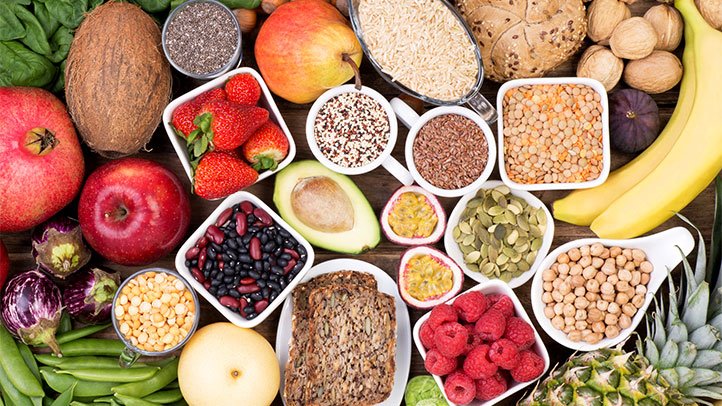
Too much sodium has many adverse effects. A person's sodium intake is directly related to their risk of developing hypertension and cardiovascular disease. Limiting salty snacks and reducing salt content in meals are two ways to lower sodium intake. It is important to reduce your intake of sodium from processed foods and fast food. Below are some suggestions for reducing sodium intake.
Increased sodium levels in the bloodstream can increase water retention. This causes your bloodstream to expand, and it will expand. Blood vessels that are too saturated with sodium can stretch and build up plaque, which makes them vulnerable to heart disease. Also, excessive sodium can cause you to feel bloated. The effects of too much sodium on your body are many, and it's important to monitor your intake to prevent serious health issues.

Too much sodium can pose a danger to your health. Too much sodium can lead to problems in your health. Research has shown that high sodium diets are associated with higher blood pressure risk. While sodium is essential for nerve function and muscle function as well as the regulation of body fluids, it is better to limit its intake. It's best to keep your daily total below two thousand milligrams.
In addition to affecting the brain, too much sodium can also contribute to heart problems. A high sodium diet in America is associated with high risk of cardiovascular disease. The Centers for Disease Control and Prevention recommend Americans not consume more than 1,500mg of sodium daily. This number should be lower than two thousand milligrams per day for most people. However, sodium can be higher in certain foods than others.
It is important that sodium intake does not affect the cardiovascular system. You may even reap the health benefits of sodium. For example, a person with high blood pressure should limit their sodium intake to 2,000 mg per day. Another benefit is lower blood pressure. A reduction in salt intake can also reduce the chance of developing heart disease. And this is only the beginning. Limiting sodium is essential if you wish to enjoy healthy living.

Over-consumption of sodium continues to lead to more deaths. High sodium intake is increasing the risk of heart disease and high blood pressure. Reducing sodium intake can help reduce your risk of developing cardiac problems. You should avoid salty foods as well as processed foods and salty meals. You should rinse canned vegetables and legumes before they are eaten. If you don't like to wash your vegetables and legumes before consuming them, you can try rinsing them first.
FAQ
What is the best exercise routine to build muscle?
There are two major exercises that you should do when you want to build muscle mass. These include isolation exercises and compound movements. While isolating exercises target specific muscles, compound movements are designed to focus on multiple muscle groups at once.
The best way to improve your workouts is to choose exercises that challenge all your major muscle groups. This will ensure that you work hard every session.
An app called MyFitnessPal allows you to keep track of everything. It allows you to log everything from calories burned to weight lifting. You can also make custom meal plans according to your goals.
Do Men Need A Gym Membership?
A gym membership is not necessary for men. A gym membership will make your money more valuable.
Many gyms offer free trial memberships that allow you to test the facilities before signing up for any monthly fees.
You can use our gym anytime you like and it's free. Your membership can be cancelled at any time you choose to love it or not.
What is butter good for?
Butter is a great source of saturated fats. This type of fat helps to build stronger bones, healthy skin, and hair.
Butter also contains vitamin K, which prevents bleeding from cuts and bruises. Vitamin K is combined with vitamin C to prevent bruises.
Butter is rich in minerals such as calcium, potassium, and phosphorous. These elements encourage stronger bones.
Butter has its limitations. Butter is high in cholesterol. Some studies show that consuming too much cholesterol may increase the risk of developing cardiovascular disease.
Also, butter is high in saturated fat, contributing to obesity and increased cholesterol levels.
However, if you must have butter, try spreading it on bread rather than dipping it into soup or salad. Bread absorbs oil more than pasta or potatoes.
What is the best way lose weight?
Losing weight can be difficult. Many people give up because they don’t know what else to do.
There are simple steps you can take in order to lose those extra pounds.
You must first ensure that you are consuming fewer calories than what you burn. You will gain weight if you eat more calories than you burn.
You should also exercise regularly in order to lose all those calories. You have many options, including walking, biking, dancing and jogging.
Third, you need to stop drinking alcohol and smoking cigarettes. These habits cause you to consume more calories than you would otherwise.
Fourth, cut down on junk food and fatty foods. You can replace these unhealthy foods with healthier choices like fruits, vegetables, lean proteins, whole grains and nuts, seeds and beans, as well as other healthy options such a legume, fruit, vegetable, legumes, whole grain, nuts, seeds, and beans.
Fifth, you must change your lifestyle and adopt new habits. You may have to get up before the rest of the world to exercise.
Sixth, be disciplined and stick to your diet plan.
Finally, you have the option to join a gym and take part in an aerobics session to burn off those extra calories.
Follow these simple steps and you'll soon start to see the results.
Statistics
- Are You One of the 20% of Guys (mh.co.za)
- Get free shipping and 25% off today. (healthline.com)
- The PRS enabled risk stratification for overall prostate cancer and lethal disease with a four-fold difference between men in the highest and lowest quartiles (HR, 4.32; 95% confidence interval [CI], 3.16-5.89). (pubmed.ncbi.nlm.nih.gov)
- According to the American Heart Association, blood pressure should be checked at least once every two years, beginning at age 20. (my.clevelandclinic.org)
- 10 pounds in a month is likely during a lean bulking phase, especially for beginners. (muscleandstrength.com)
External Links
How To
What nutrients do men need each day?
For healthy growth and development, men need to eat a balanced diet. The body requires vitamins, minerals, proteins, carbohydrates, fats, water, fiber, and other essential elements.
The male body also requires specific nutrients at different times throughout the day. To give you an example, the body uses energy it receives from food to make hormones and antibodies. When you get up, protein is used to repair and build muscle.
Your body will burn fat at night and store the extra energy as a form of glycogen. During this time, your body needs fewer calories but still needs sufficient nutrients. If you feel hungry, you can have a snack in the evening.
Working out requires adequate carbohydrate and protein intake. If you exercise hard, you might feel muscle soreness.
To prevent this from happening, you need to consume carbs or protein within two hours. To get energy from glucose, your body will start to degrade stored glycogen.
Additionally, it is important to eat protein right away after your workouts are over. This prevents the breakdown of muscle tissue that occurs while you sleep.
Lactic acid is produced by the body during periods of intense exercise. Your body can build up lactic acid in the bloodstream which causes fatigue. To avoid this, you should eat foods rich in carbohydrates, such as fruits and vegetables.
Carbohydrates give your body the energy it needs to recover from strenuous exercise.
You may also want to include lean meats and fish, as well as yogurt, cheese, yogurt, beans and nuts in your diet.
All of these foods contain high quality protein. Protein is important for muscle growth and repair. Protein is also necessary for the production of sex hormones such as testosterone.
To maintain healthy skin, hair, and joints, you also need sufficient dietary fats. Healthy men need between 20% and 35% of their total caloric intake from fat.
Fat helps keep your heart strong and protects against cancer. It helps keep your brain working properly.
Vegetable oils, such as olive oil, sunflower oil or corn oil, soybean oil and peanut oil, can supply most of the fats you require.
These oils are high-in monounsaturated, unsaturated fatty acid (MUFAs). MUFAs reduce cholesterol and inflammation. They protect cells against damage from free radicals.
Saturated fats (SFAs), are found mainly in animal products such as meat, milk products, and butter. SFAs can raise LDL ("bad") cholesterol levels and increase triglycerides. They promote weight gain as well as belly fat.
Plant-based oils such as vegetable oil, nuts, seeds, or grains are rich in polyunsaturated fats (PUFAs). PUFAs help improve cardiovascular function, and lower inflammation. They also help control blood sugar and cholesterol.
Erectile dysfunction is common in men with low HDL ("good") cholesterol. Saturated fats are a major source of bad cholesterol. This lowers good cholesterol.
Men who eat a lot of red meat or pork develop prostate problems because they contain large amounts of nitrates. If cooked at high temperatures, the nitrates become nitrosamines. These compounds can cause cancer.
Most processed meats have nitrites and harmful chemicals. These chemicals should be avoided.
The American Heart Association suggests that no more than two servings per week of red meat should be consumed. Instead, choose poultry, fish, legumes, tofu, whole grain bread, and cereals.